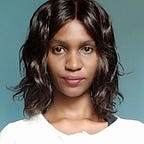10 Steps to Becoming an Ally
Essential Actions to Support Equality and Advocate for Marginalized Communities
Who is an Ally?
Someone who supports and advocates for groups that are marginalized or discriminated against, using their own privilege to promote inclusivity and fight injustice
Allies actively work to understand the challenges these groups face and use their own privilege and resources to advocate for change and support.
Here are key steps on how to effectively become an ally, complete with practical examples to help illustrate these concepts.
1. Educate Yourself
Understanding the issues that affect marginalized communities is the first step to being an effective ally. Invest time in reading books, watching documentaries, and listening to the voices of those directly impacted.
Example: Read "So You Want to Talk About Race" by Ijeoma Oluo or watch documentaries such as "13th" by Ava DuVernay to gain insights into racial injustice.
2. Listen Actively
Being a good ally means listening more than you speak, and valuing the experiences and perspectives of marginalized groups without inserting your own biases or experiences.
Example: When attending meetings or events focused on social issues, focus on listening. Let individuals affected by these issues lead the conversation.
3. Speak Out Against Injustice
When you witness discrimination, speak out against it. Silence often acts as endorsement of the status quo.
Example: If you hear someone at work making a discriminatory joke or comment, calmly explain why it is inappropriate and hurtful.
4. Support with Action
Beyond words, your support needs to manifest in actions. This could involve attending rallies, signing petitions, or supporting businesses owned by marginalized individuals.
Example: Participate in or organize fundraisers for organizations that fight for human rights, such as UHAI EASHRI, Amnesty International, etc.
5. Amplify Voices
Use your platform, regardless of its size, to amplify the voices of those who are marginalized. Share their stories, posts, and art to help them reach a broader audience.
Example: Retweet, share, and promote social media content created by marginalized creators, giving them credit and visibility.
6. Engage in Difficult Conversations
Be willing to have difficult conversations with your peers to challenge prejudiced viewpoints and educate them.
Example: If a family member makes a prejudiced remark, engage them in a thoughtful discussion about why their views might be harmful and the impact they have.
7. Continuously Reflect and Learn
Being an ally is an ongoing process that requires you to continually reflect on your actions and attitudes, and be open to learning from your mistakes.
Example: Keep a journal of your experiences as an ally, noting what you’ve learned and how you can improve.
8. Advocate for Policy Change
Support policy changes that aim to dismantle systemic inequalities and promote justice for marginalized communities.
Example: Write letters to your local representatives advocating for policies that protect the rights of marginalized groups, or support organizations that lobby for such changes.
9. Donate and Fundraise
Financial contributions can significantly aid organizations working on the front lines of human rights. Consider setting up recurring donations.
Example: Set up a monthly donation to a non-profit like Equitas or Human Rights watch Canada, UHAI EASHRI etc supporting activists.
10. Commit for the Long Haul
Commit to being an ally long-term. The fight for equality is ongoing, and sustained support is crucial.
Example: Make a personal pledge to engage in allyship activities regularly, and revisit your commitment each year to add new goals.
In conclusion, an ally is a crucial supporter in the fight against discrimination and injustice, actively advocating for marginalized groups by using their own resources and privileges to foster inclusivity and equality.
